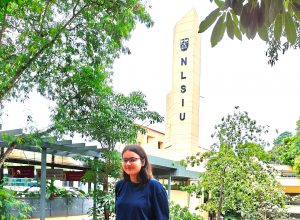Tips & Tricks to Crack MCQs in CLAT/Law Entrance Examinations
Tips & Tricks to Crack MCQs in CLAT/Law Entrance Examinations
Common Law Admission Test (CLAT), AILET (NLU Delhi) and almost all other Law Entrance examination are objective in nature and test students through multiple choice questions (MCQs). Often students get perplexed looking at these MCQ and are unable to make the right choice. Even after strong preparation, right knowledge and adept skills, they seem to jostle for the correct option. To crack such questions, it is important to know the right techniques. Given below are some tips to help students smartly crack the MCQ in Law Entrance competitive examinations.
Incessant Practice
The more you practice the better you get. The adage “Practice makes a man perfect” stands true as it introduces you to different ways of solving the same problem and in a relatively short span of time. Moreover, continuous practice of objective type questions not only strengthens your knowledge and skills but also introduces you to diverse and effective techniques to decoding the MCQ code.
Focus on the Keywords
Often there are some important words in the question that directs you to the answer. Pay heed to them. Look for such keywords and scan all the options with respect to the same. These keywords help you determine the right option and save you from choosing the wrong one.
Concrete Reasoning
When it comes to Cracking the CLAT/Law Entrance exams, you can’t choose your answer on the basis of guesswork. Your answer option should be supported by concrete reasoning and logic. As you are aware, most of the law entrance competitive examination have negative marking. Therefore, guessing the answers is a bad choice. A reasoned approach can help you crack the MCQs confidently.
Formulate your Answer
In the examination, there would be questions you already know answers to without even looking at the options. However, it is strongly advised that you first read the question and formulate the answer in your mind and then go through the options. This will help you decode the MCQ code as there are fewer chances of getting confused because you already have the answer in your mind.
Elimination Method
When nothing else works try elimination method. Shift your focus from locating the correct answer to striking off what you think is a wrong option. This strategy will not only narrow down your options but will also save your precious time and help you pick the right answer. Remember, exclusion mechanism always works.
Strategize well
In is imperative to strategize in advance for the impending test up ahead. Strategizing is possible after you have gained an edge over how options are twisted to make them appear confusing. Strategizing not only helps you carefully choose the right answer but also improves your speed and accuracy in the exam, thereby giving you enough time to think of the most effective way of Cracking the MCQs.
Be Confident be Positive
While Cracking MCQ questions, it is of utmost importance to be confident and positive of your choice. If you seem to falter at one of the questions, it is advisable to carefully go through it again and make the choice only when you can support it with logical and correct reasoning. If not, try elimination method and if that also fails to work, it’s best to leave the question and move on.
Refrain from Repetition
We all have heard the common adage, “Learn from your mistakes.” Well it is time you apply that in your CLAT exam as well. There could be a chance you might get a question similar to what you had attempted before and messed up too. It’s best to learn from your past mistakes and refrain from committing the same error again.
Time Management
Managing time well is very important to crack competitive examinations like CLAT and AILET. Every paper has easy, moderate and difficult questions. It is important to prioritise the type of question you want to answer first. How can manage time during the exam can play an important role in helping you crack as many MCQs as possible and correctly in the exam. It is advised to answer the questions that you are confident of first and also according to the subject weightage it carries. Always read the paper completely, prioritise and then answer the questions.



